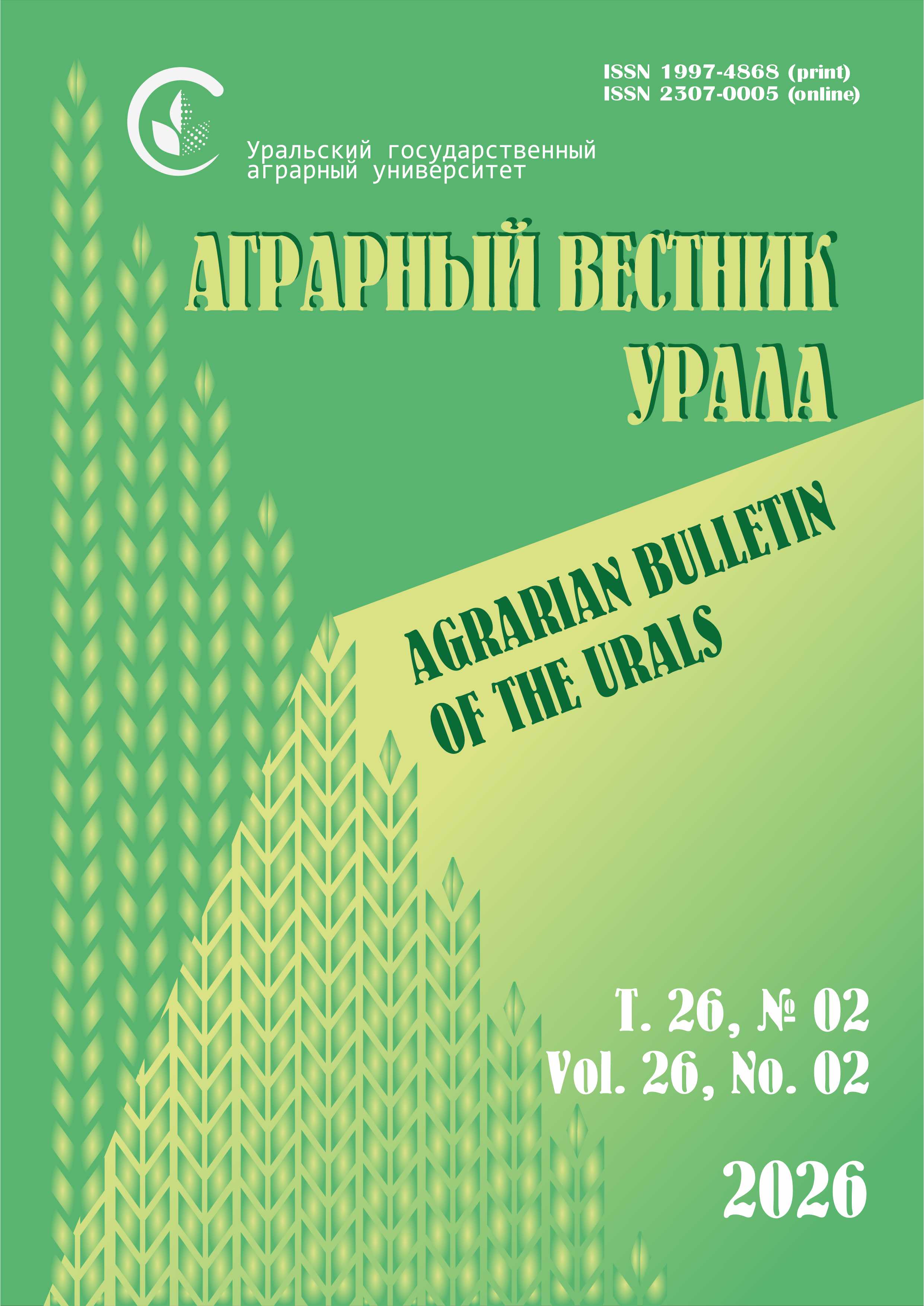Authors: I. N. MIKOLAYCHIK, doctor of agricultural sciences, professor,
L. A. MOROZOVA, doctor of biological sciences, professor, Kurgan State Agricultural Academy named after T. S. Maltsev (Lesnikovo village, Ketovsky district, Kurgan region, 641300, e-mail: This email address is being protected from spambots. You need JavaScript enabled to view it.),
V. A. MOROZOV, graduate student, South Ural State Agricultural University (13 Gagarina Str., 457100, Troitsk, Chelyabinsk region)
Keywords: black-and-white cows, Lacto C and Extima 100 energy additives, milk production, milk chemical composition, reproductive capacity, economic indicators.
Abstract. In order to increase the genetic potential of highly productive cows, we carried out scientific and economic experience on the use of energy feed additives in their diets. It was established that feeding the cows, in the first 100 days of lactation, the energy feed supplement “Lacto C” in the amount of 200 g/head/day increased their milk production by 8,88 % (P < 0,05), the level of fat and protein in milk – by 0,11 % and 0,09 % compared with analogues of the control group. The inclusion in the diet of cows energy feed additives the period of milking had a positive effect on the chemical composition of milk. Thus, the energy value of 100 grams of milk obtained from cows 1 of the experimental group was 2,96 MJ, which is more than the same indicator of the control group’s peers by 0,07 MJ (2,42 %) and analogs 2 of the experimental group by 0,05 MJ (1,73 %) accordingly. High milk production did not adversely affect the reproductive function of cows. Thus, the service period of cows 1 of the experimental group was 9 days shorter compared with the control group and 5 days compared with 2 experimental groups. At the same time, the intercalving period in cows 1 of the experimental group was 411 days, which is 15 and 7 days shorter than in animals of the control and 2 experimental groups, respectively. The duration of the dry period in experimental animals was within the limits of acceptable values, while in cows 1 of the experimental group, this indicator was 64 days, which is 7 and 3 days shorter compared to the control and 2 experimental groups, respectively. Feeding the basal feed energy additive “Lacto C” in the amount of 200 g/head/day reduced the cost of milk production by 2,70 % and increased profitability by 9,80 % compared with the control group.












